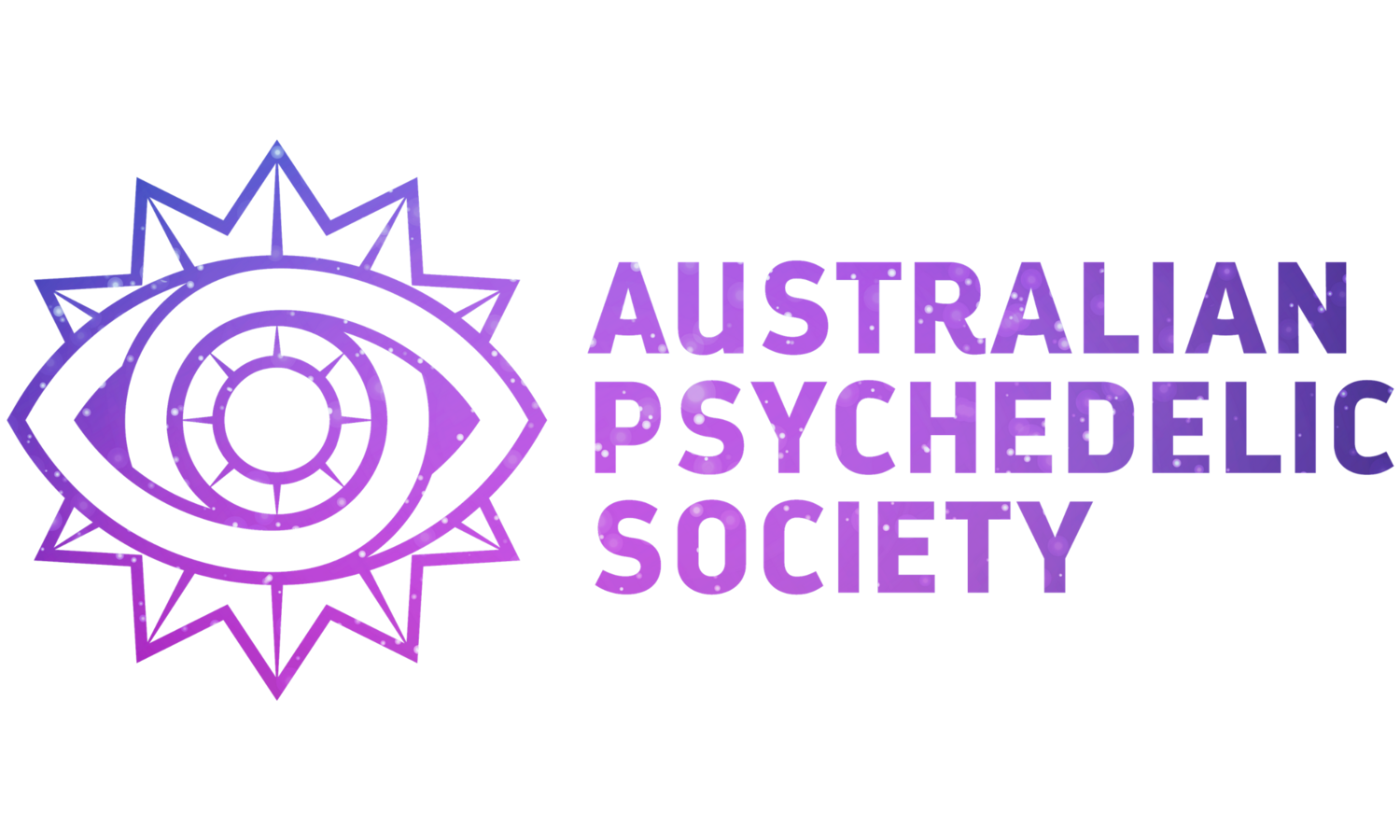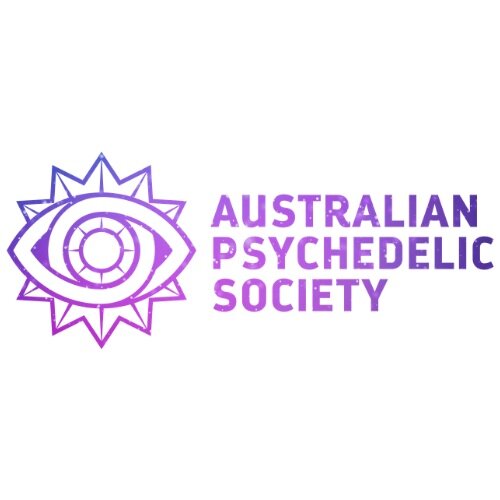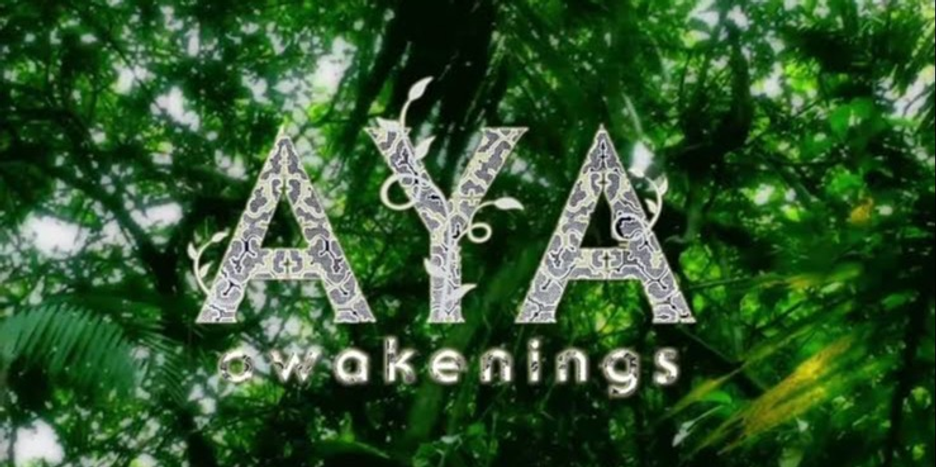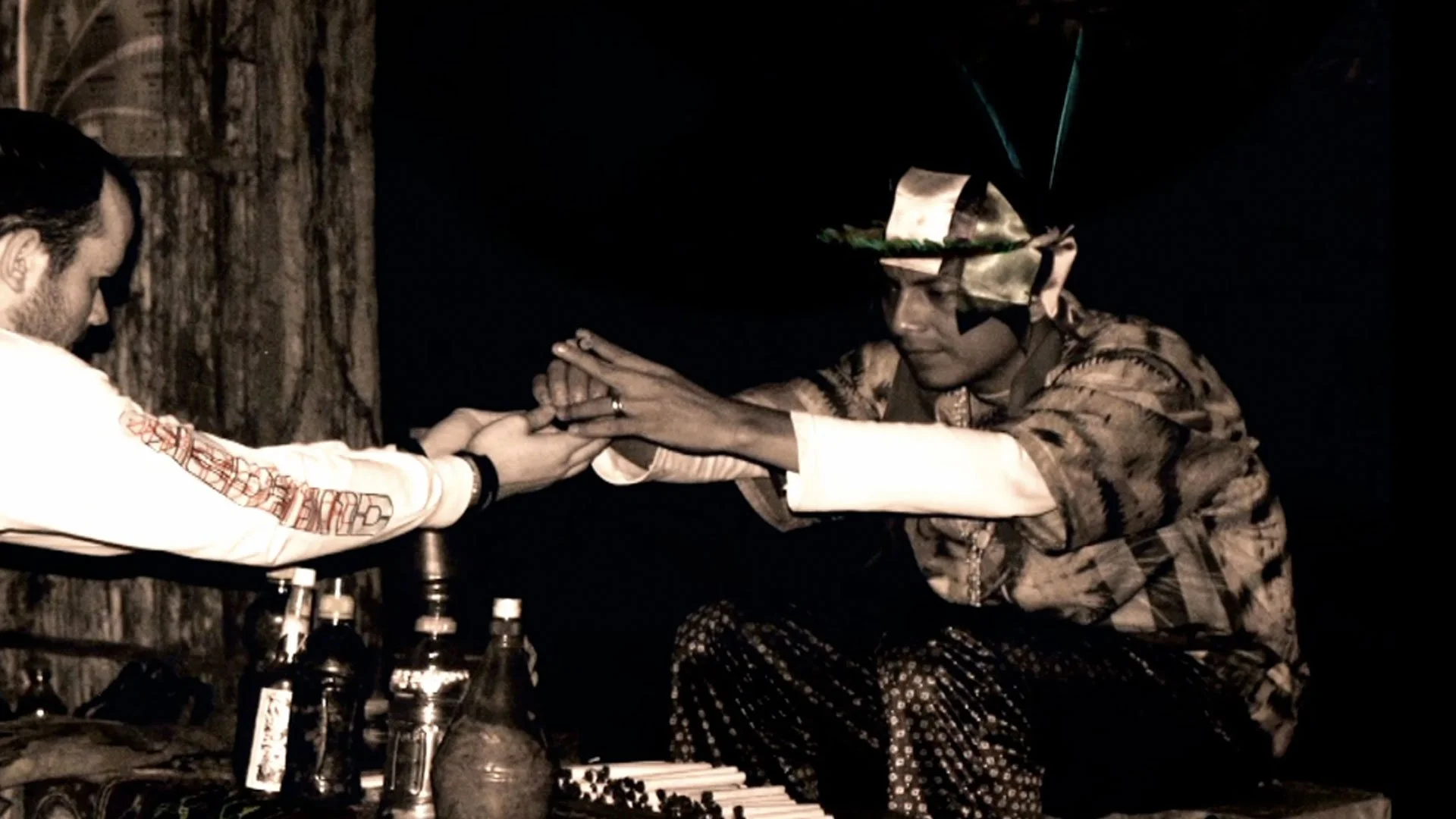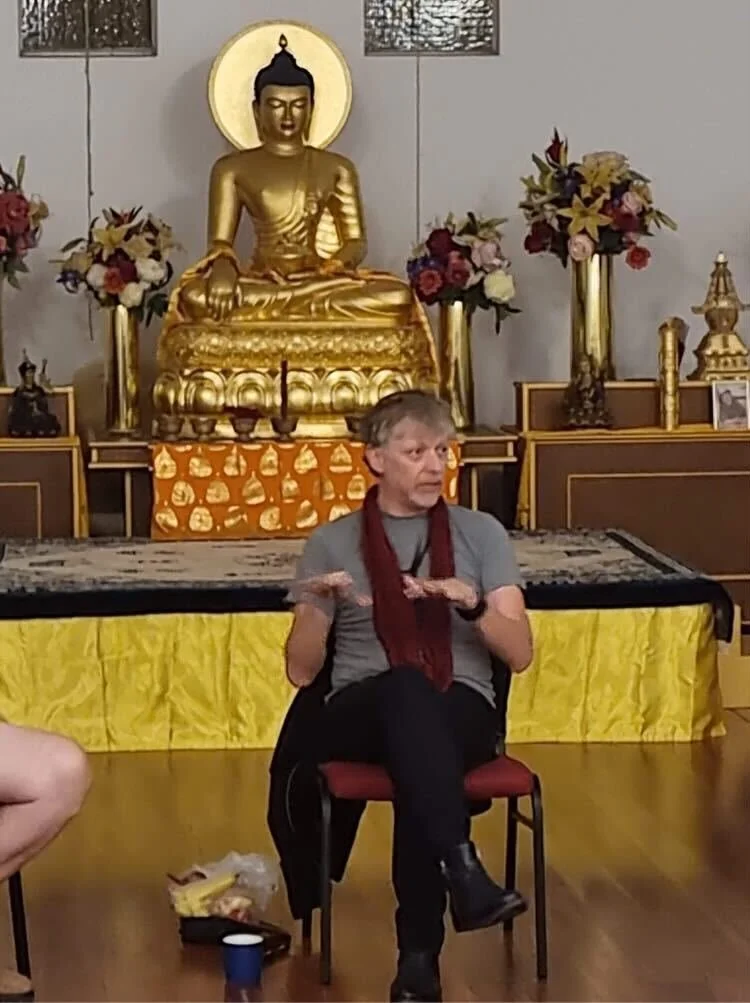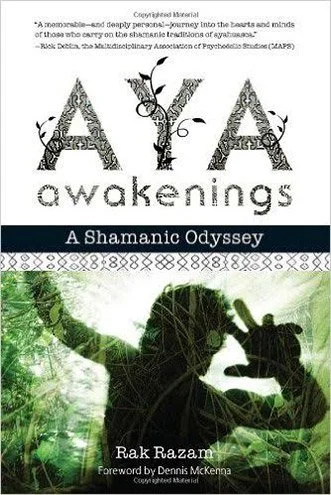Aya Awakenings Q&A with Author Rak Razam Review
Written by Marc Devitt
With what seemed like the first APS book club meeting in some time convening at Newtown’s Rigpa ‘Temple on the Park’, despite almost none of the nearly 20 attendees having even read the book(!) there was a mild group contact high that soon electrified the room as the author Rak Razam recounted his intrepid expedition into the Peruvian Amazon in 2006, when he attended the second ever Annual Shamanic Conference in the bustling jungle port-city of Iquitos. Even (way back!) then, there was lots of ‘grokking’ over the culture of Ayahuasca, and Rak opened his talk with an explanation of this term, a neologism coined by the American science fiction writer Robert A. Heinlein for his 1961 novel Stranger in a Strange Land. To quote Heinlein directly from that book:
“‘Grok’ means to understand so thoroughly that the observer becomes a part of the observed – to merge, blend, intermarry, lose identity in group experience. It means almost everything that we mean by religion, philosophy, and science and it means as little to us as colour does to a blind man. ”
Rak’s reference to Stranger in a Strange Land draws on its being emblematic of the Sixties, perfectly fitting the iconoclastic mood of the times. Set in a future United States, post-World War Three, where organised religion has seized the government and the military-industrial complex, with a powerful religion being the Fosterite Church of the New Revelation, a populist megachurch not unlike the ones we see today, wielding ever-increasing influence over the machinery of politics. The protagonist, raised entirely on Mars, is forced to return to Earth and learn Earthling ways and in turn combines elements of this populist megachurch with other elements drawn from Western Esoteric traditions and starts a break-away church of his own (the “Church of All Worlds") in an attempt to teach the Earthlings about this mysterious Martian concept called “Grok(king),” which bewilders the Earthlings. Accused of blasphemy, Mike’s new temple is destroyed and he is later killed by a mob of Fosterite faithful, yet his followers continue in their attempt to reorganise human society along better lines, amidst ongoing persecution by the megachurch for persistently ‘grokking’ on regardless.
Well, now some 60 years on from the Sixties, and it seems that grokking Ayahuasca and other entheogenic plants is more prevalent than when Rak visited the Peruvian Amazon back in ’06 to immerse himself in the complex milieu of Ayahuasca tourism. There he meets a motley crew of "spiritual tourists," rogue scientists, black magicians, and Indigenous and Western healers and guides, as the blurb for Rak’s book Aya Awakenings puts it. Without writing a spoiler (and Rak’s talk was enough to inspire most of us to actually read the book and/or watch the movie!), I think the most impressive and profound takeaway from his talk (as I understood it anyway) was the pressing need for fellow entheogenic enthusiasts in the secular ‘West’ to establish our own mystery schools, like Mike’s rebellious alternative to the megachurch monopoly in Stranger in a Strange Land. Such a pathway, we mused, might be necessary to provide a bulwark against the insidious creeping flood of elitist micro-dosing therapeutically focused corporate “pseudo-delic” marketing milieus, slowly but surely seeking to turn the culture we have nurtured for decades (under the ever-present threat of persecution, prosecution and ridicule) into a reductionist one-pilled panacea and ‘soma for the masses’.
Of course, the prospect of establishing a variety of entheogenically-centred mystery schools is fraught with dangers and could easily devolve into cultish behaviour – the presence of black magic Ayahuasca drinking brujos manipulating people for power in the Amazon that Rak recounts of, is both a hoary and contemporary testament to that ever-present danger. We are faced, however, with the pervasive refashioning of psychedelic use as exclusively the purview of bourgeois ‘professionals’, entrepreneurial predators and big pharma pandits, who would like to centralise the use of these sacred medicines and restrict them to those who can afford to pay through the nose for them in a ‘safe psychotherapeutic setting’. The pressing need then, for us ‘everyday people’ to defend the free and decentralised use of these plants at ‘heroic doses’, in which they are respected for their most preeminent purpose – as freely and organically available ego-dissolving sacraments – is more expedient than ever. Indeed, Rak ended his talk with an exhortation for us to preserve the decentralised free-use of psychedelics: “Grow your own! Get it out of their hands!”
Rak pointed out the fact that traditional use of these naturally occurring entheogens usually involved some level of apprenticeship, levels of initiation, which often involved years of gruelling ordeals and testing in order to ‘make the cut.’ While I personally agree (in the spirit of religious freedom and the freedom of conscience) that people should be allowed to experiment with the fresh formation of such initiatory traditions, schools, apprenticeships and so forth – and even that such activities could potentially be just as helpful and healing as they might be fraught with danger and manipulation – I believe that the availability and indeed the right, for a solo practitioner to trek into the field or forest and respectfully gather the plants for their own private, unregulated and unmonitored use must always be preserved, and that natural right (even obligation) is the lowest common denominator when it comes to the many convoluted expressions of ‘freedom’ pervading psychedelic cultures at present. It would be a shame to withstand the corruption of our craft by big pharma only to find that lone-wolf practitioners are now persecuted by a series of Ayahuasca churches (even megachurches like Heinlein’s Fosterites?) for heretical behaviour because they do not subscribe to a particular ‘initiatory tradition.’ This led the conversation to the collective recognition that some kind of initiatory structure – even if only skeletal – is necessary for the safe and effective use of psychedelics. Of course, this is not a new idea - the obvious example being the attempts by Tim Leary to stress the need for establishing ‘set & setting’
Toward the end of the evening we acknowledged the cataclysmic spectre of planetary emergency which looms over the hyper-accelerative, consumption-obsessed, market-saturated, globalised technosphere which we have created as our own default ‘set and setting’. What consequences are we to expect from the mass-purging in collective psychosomatic dimensions induced by the mass-consumption of Ayahuasca and other such entheogens? Will the plants be merely bonsai-poodled and marketed as the next alternative to SSRIs by a Saint-Simonian elite who preach their purpose as a staple of the office designed at micro-doses to make you ‘fitter, happier, more productive,’ comfortably and complacently well-adjusted to a profoundly soul-sick society? One audience member questioned the pros and cons of the big pharma model: it had seemed to soften attitudes around recreational mushroom use in places like Oregon, USA at least; and with regard to the prospect of fresh psychedelic initiatory lineage traditions being allowed to flourish in our secular society:
“The new world order has spent decades moulding us into their can, they aren’t about to push these more tribal close-knit community situations on us. The white brother has no wise elder to look up to for guidance anymore” said the anonymous attendee “We are mostly flying blind. It’s sad.”
Nevertheless, Rak counsels that even in the face of this spectre we should keep a cool head: don’t panic, trust the process that the plants have already begun, but most importantly DO THE WORK and COMMUNICATE CLEARLY the messages that our conversations with these plants have made incumbent upon us to bring into the world. The Gaian planetary plant-network has been responding to the assault on its sensitivity and has been slowly softening us for decades now too, responding to the changing environment, and gently urging us to participate in this planetary death-and-rebirth process. One thing is for sure: the preservation of the decentralised and free-use culture of plant entheogens for sacramental ego-dissolution is necessary. We cannot allow for grassroots free-use psychedelic cultures to be absorbed by eco-preneurs into an “I’m a Celebrity on Ayahuasca … Get Me Out Of Here!” type pop-culture, in which we gawk and gush over gentrified dinner-dating parties, in which entheogens replace the wine glass, fuelling ever yet more vapid conversation.
The task at hand is to get to work enacting the altruistic themes and urgings which these plants have so often placed before us as a pressing planetary need and responsibility to conduct. As Rak accentuated: we need to work on it - do the trabajar; the work - not just ‘take’ Aya to induce some insultive, communalised, solipsistic ‘awakening,’ but to LISTEN to Her, HEAR Her message and ACT. Rak lamented that, in some ways, the ongoing ‘boom’ in Ayahuasca tourism is corrupting the last remaining traditional Ayahuasca cultures of the Amazon, just as the rubber boom did a century before his visit there. Thus, if those of us who have profited from the exile of indigenous Amazonian peoples from their homelands, refuse to shirk our responsibility to actually SERVE Aya – with more profundity behind that word than just ‘serving’ Her in a cup - then, as mentioned in the audience quote above, the 21st century psychedelic renaissance may yet “find its final ‘fruits’”, to borrow from William James … in (a genuinely pragmatic philosophical awakening of) not-for-profit social justice organisation”.
Aya Awakenings: A Shamanic Odyssey, as Rak put it, is his “love-song to the world” and readily available from most online outlets including his website and in shops that carry such interesting printed literature. So come along to the semi-monthly APS Book Club and stay tuned for more APS events in the making! Here’s what one of the participants from this book club evening had to say; he’s an Aussie Digger who served in the Afghanistan and Iraq wars, suffered PTSD, and has since benefited immensely from working with entheogenic plants:
“I’ve been following Rak’s work for a long time now and see Rak as one of the most respected psychedelic journalists and podcasters in the broader community. I haven’t read Aya Awakenings but wanted to come to hear Rak talk about his book. Quick note about me, I am a veteran of the Iraq and Afghan wars. I served as a front-line bomb disposal tech. Needless to say, the wars left me in a highly stressed and anxious condition which caused me to seek out the only treatment that worked for me: psychedelics. Any form of PTSD that I had from the wars was eradicated and I was left seeking further answers: about our greater reality, the behaviour and control mechanisms used by our government.”
Rak explained that his book explores his journey along the pathways of Ayahuasca, specifically those he encountered in Peru, however, I found Rak's insight into current events and possible future events to be highly insightful. Since that night I have already ordered Aya Awakenings and I am seeking out his voice more on current events and the possibility of coming challenges for the psychedelic community, such as the inevitable medicalisation, commercialisation and consequent commodification of psychedelics.
